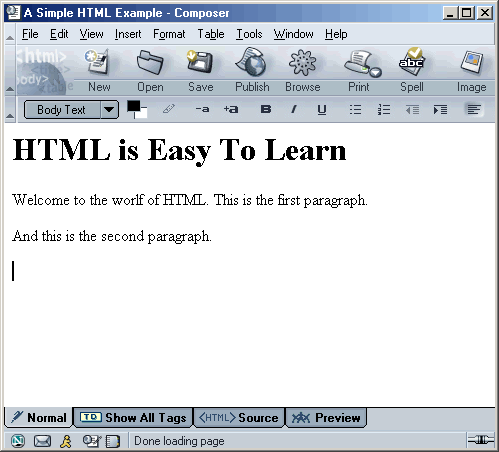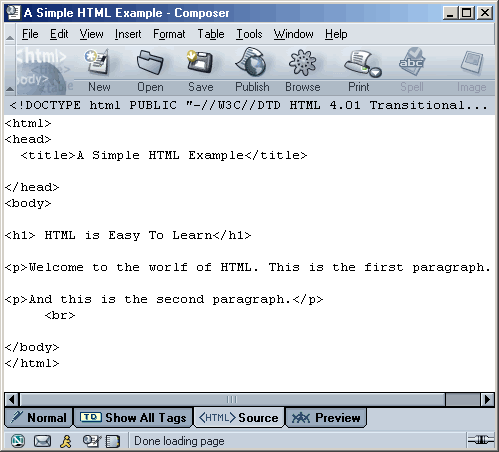| |
HTML Tags
|
|
| |
|
|
| |
HTML pages are made up of tags.
Tags are used by browses to display the contents of a web page. When using
a WYSIWYG html editor the tags are constructed automatically. However knowing
what tags do and how to use tags can help a user customize a web page. Refer
to the Tag Reference Sheet
for a list of the most commonly used tags. |
|
| |
|
|
| |
Common Tags |
|
| |
|
|
| |
An easy way to see what tags are used to control forming on a page using
Netscape Composer is to open a page in Netscape Composer then change views
to the Source View by clicking on the '<HTML> Source' tab. |
|
| |
|
|
| |
 |
|
| |
Normal |
|
| |
|
|
| |
 |
|
| |
<HTML>Source |
|
| |
|
|
| |
As you can see in the second window the title "HTML is Easy To Learn"
uses the <h1> and </h1> tags. These tags are simply 'heading
one' tags. The first tag, <h1> is called the opening tag. The second
tag, </h1> is a closing tag because of the use of a forward slash
"/" - "</>". Most tags use a closing tag that
includes the forward slash. The exception to this is the break or <br>
tag. The <br> is interpatated by the browser as a line break.
|
|
| |
|
|
| |
Many tags can be used to configure an HTML page. The demo page "Tags
and Effects" is an example of a few basic tags. How tags are used
and their effect on the HTML page. After viewing the page Tags and Effect
in a browser look at the code
used to construct the page. |
|
| |
|
|
| |
|
|
 Welcome to WebCT
Welcome to WebCT Welcome to WebCT
Welcome to WebCT
